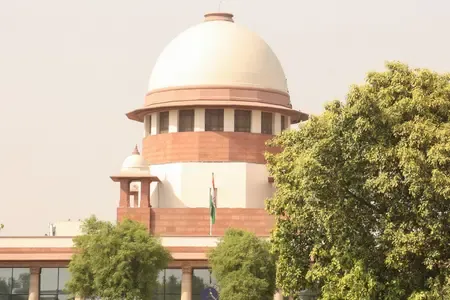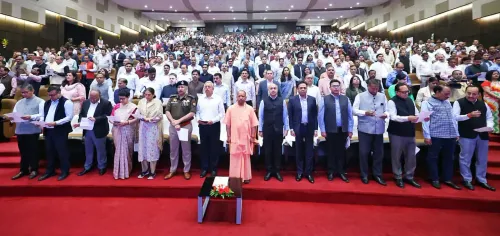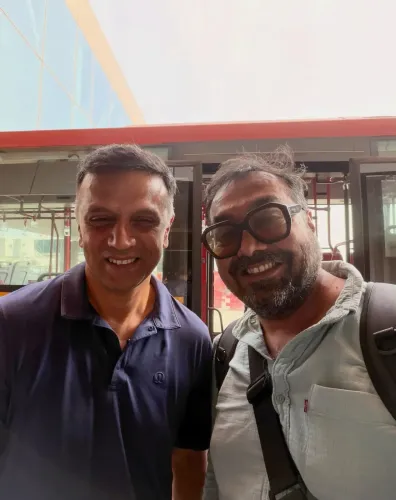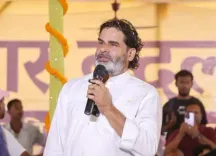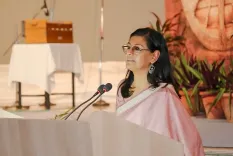Thousands Participate in Final Friday Prayers in J&K After Nightlong 'Shab-e-Qadr' Observance
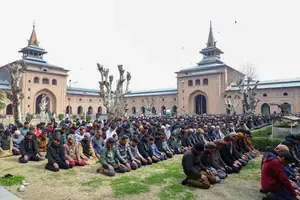
Synopsis
Key Takeaways
- Nightlong prayers were held on the 26th of Ramadan.
- 'Shab-e-Qadr' is deemed the holiest night of the year.
- Authorities restricted prayers at Jamia Masjid for security reasons.
- Large gatherings took place at various mosques in Srinagar.
- Mirwaiz Umer Farooq criticized the ban on Jamia Masjid prayers.
Srinagar, March 28 (NationPress) Thousands of Muslims in Jammu and Kashmir gathered to perform the final Friday prayers of the sacred month of Ramadan following a night of devotion and recitation of the holy Quran during 'Shab-e-Qadr'. Muslims observe nightlong prayers and Quran recitation on the 26th day of Ramadan.
This night is regarded as the most sacred of the year, marking the revelation of the first verse of the Quran to Prophet Mohammad by Archangel Gabriel.
Following these nightlong observances, congregational prayers were conducted in various mosques throughout J&K, symbolizing the conclusion of the fasting month.
Significant gatherings took place at the Hazratbal shrine, Syed Yakoob Sahib shrine, and other mosques in Srinagar city.
However, authorities prohibited Friday prayers at the Jamia Masjid in the Nowhatta area of old Srinagar, citing concerns over maintaining public order, according to official sources.
In Jammu and other towns across J&K, many Muslims came together to perform the last Friday prayers, with all gatherings concluding without incident.
Mirwaiz Umer Farooq, a prominent religious and political figure, described the decision to restrict prayers at Jamia Masjid as regrettable.
Recently, the Union Home Ministry (MHA) imposed a ban on the Awami Action Committee led by Mirwaiz Umer Farooq, stating that the organization was acting against state interests and inciting youth to violence.
The Awami Action Committee was established in 1963 during the holy Relic agitation in Kashmir by Molvi Mohammad Farooq, later led by his son, Mirwaiz Umer Farooq, following his father’s assassination.
Alongside the Awami Action Committee, the MHA also banned Ittehadul Muslimeem, headed by Molvi Masroor Anbas Ansari.

